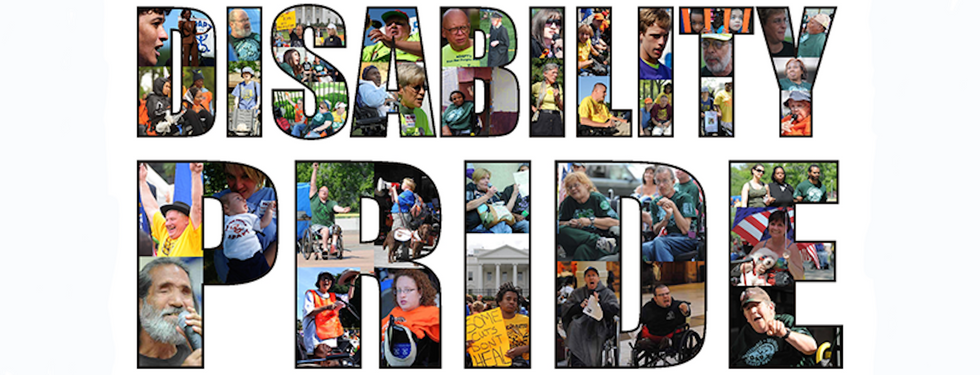Given a recent sense of growing vocal support for (at least, some) marginalized groups of people, it is disappointing that this basic part of disability etiquette has been ignored. Disappointing, but not surprising– with disability used as a metaphor for anything negative, and dehumanized and/or outright ignored by even the most justice-oriented groups, I’ve stopped expecting progressive abled people to acknowledge disabled existence. But what really grates on me is this: when they do decide to namedrop disability as a way of asserting their own progressiveness, they mention people with disabilities. People who have disabilities. People who were unlucky enough to be struck with such a terrible, horrible, no-good very bad misfortune that happened to leave them – gasp! – disabled.
Okay, maybe not that last one, but you get the idea.
The thing is, even the most well-meaning person who uses this “person-first language” hasn’t done their homework. The Autistic Self Advocacy Network (ASAN) has said explicitly that they favor identity-first language. Disabled people across the blogosphere have asserted their preference for identity-first language. Although few bloggers that I have seen have touched on mental illness, I (as a mentally ill writer) am hereby asserting my own preference for identity-first language with regard to this, as well.
With a quick Internet search, it is easy to find article after article on the importance of identity-first language, written by disabled people– but person-first language continues to be taught by and to well-meaning abled/sane/neurotypical folks in sensitivity-training sessions all over. And for every identity-first article written by a disabled person that I find, I can also find a litany of person-first language articles, all written by abled authors, and often by parents of disabled children.
Fundamentally, the over-valuing of non disabled opinions on disabled terminology is an issue of respect. People are far more comfortable listening to abled/sane/neurotypical voices on disability issues, rather than disabled people themselves. Disrespect and dehumanization have long been hallmarks of abled treatment of the disabled. This does not only explain the acknowledgement of abled opinions over disabled opinions, but also explains the reasoning behind person-first language itself.
Abled people cannot, will not, even begin to respect disabled people as disabled people. In order to listen to us at all, they feel infinitely more comfortable relegating disability to the position of an afterthought– if they can convince themselves to ignore “disability” and focus on “person with a”, they are better able to think of us as people at all. They emphasize, indeed, that the reason behind person-first language is to respect the “person” (with the disability). But what this tells me–for whom neurodivergence and mental illness are inseparable from identity– is that you don’t respect me for who and what I am. You respect me for the sane and neurotypical person you have made up in my place.
The only way to truly support disabled/mentally ill/chronically ill/neurodiverse people is to respect all of us. The entire person, even the parts you don’t like. The only way you can even begin to support us is to respect our right to self-definition.
















